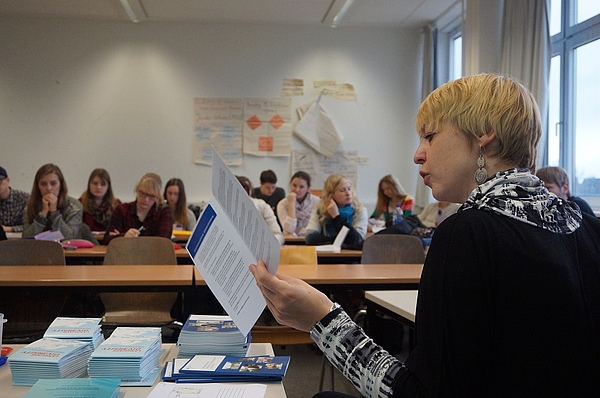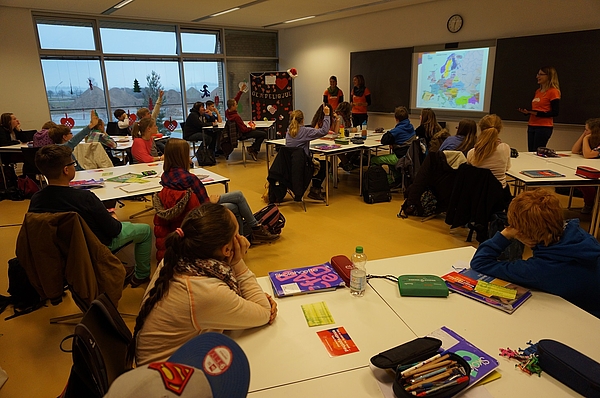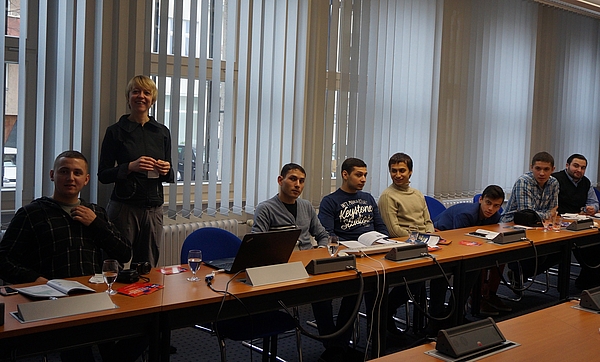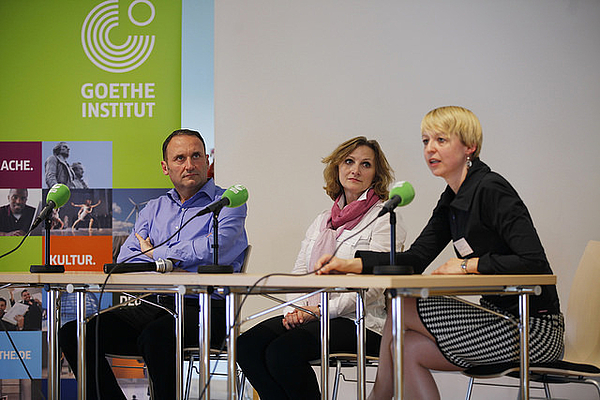Providing information and advice
For schools, universities and other interested groups
The Minority Secretariat, which is responsible for the four autochthonous national minorities of Germany and pursues their shared interests, considers that it is an important task to provide information and discuss with school students, teachers, students and other interested persons about the minorities and the challenges they face in Germany and Europe.
On this page we give a list with possible subjects that we can adapt flexibly to the needs of your group or that we also can make more specific.
Our offer is not only directed to persons belonging to national minorities, but in particular also to the population of Germany as a whole, and beyond. Especially in the regions where the minorities are living, school students should know about their existence, and know the situation both from a German and also from a European perspective.
This is where questions concerning the autochthonous national minorities and minority policy in Germany can be raised, this is where schools classes, students and interested citizens can discuss and get further information. This is the place where you can learn to understand why there are bilingual place-name signs in Lusatia, why school students at a Danish school in Schleswig-Holstein start the day by singing Danish songs in class together, this is where you can learn the meaning of the North Frisian saying “Rüm hart, klaar kiming”, why the Bonn-Copenhagen Declarations are so important, this is where you hear in which city the Documentation and Cultural Centre of the German Sinti and Roma is located and what Romanes is, or what the added value of the national minorities is for Germany or what the benefits are of natural bilingualism.
It is our pleasure to invite you to the Bundeshaus building in Berlin, or to come and visit you.
We will be pleased if this topic raises your interest. We are pleased to answer your questions! The following subjects should give you an idea of possible contributions in different forms (as a presentation, lecture or discussion). We also look forward to discuss with you about other topics.
Possible subjects:
- National minorities in Germany: the Danish minority, the Frisians, the Sorbian people and the German Sinti und Roma
- The latest activities and highlights of the four autochthonous minorities in Germany
- The minorities in Germany are not alone – about other minorities in Europe
- Minority policy in Germany with/without focus on one of the four minorities
- How are the autochthonous minorities in Europe organised?
- Natural bilingualism and multilingualism in Europe – what are the advantages?
Concrete examples:
- The difference between autochthonous and allochthonous (migrant) minorities; definition of a minority
- How are the minorities in Europe organised?
- Why do autochthonous national minorities exist? What does it mean if you belong to a minority?
- Elections and election campaigns – what can we do to ensure that our messages and interests are being listened to?
- Organisation forms and –structures:
- Federal Union of European Nationalities (FUEN) and Youth of European Nationalities (YEN)
- European Commission and the Council of Europe from the perspective of the minorities
- Minority Council / Minority Secretariat of the four autochthonous minorities of Germany
- German Federal Parliament (Bundestag) and the natonal minorities
- The representative organisations of the minorities: Sydslesvigsk Forening (SSF), Südschleswigscher Wählerverband SSW (South Schleswig Voters’ Association), Domowina – Federation of Lusatian Sorbs, Central Council of German Sinti and Roma, Frasche Rädj / Frisian Council Section North
- Minority policy in Schleswig-Holstein/Saxony/Brandenburg as examples




 Find us on Facebook
Find us on Facebook